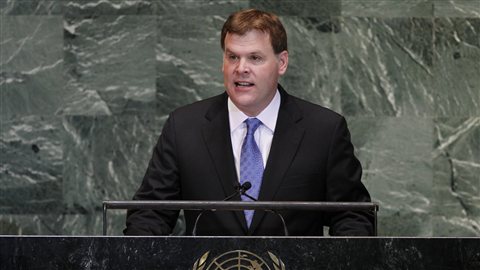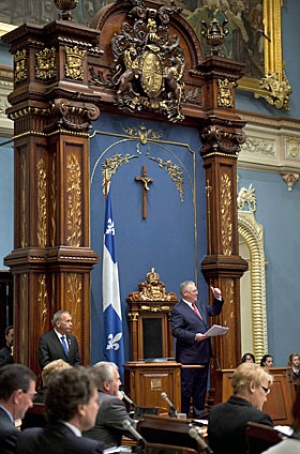On October 1, 2012, in an address to the United Nations General Assembly, Canadian Foreign Affairs Minister John Baird criticized the organization’s obsession with internal matters as hindering its ability to tackle dire international issues. At the General Assembly Baird stated, “The United Nations must spend less time looking at itself, and more time focused on the problems that demand its attention.” This statement not only represents Canada’s growing impatience over stalled progress, but the latest manifestation of a novel approach to foreign policy.
Minister Baird’s sharp criticism illustrates the emergence of deep cynicism towards the UN’s ability to handle emerging crises. Speaking on Syria, Minister Baird stated that “while the brutal and repressive regime of Bashar al-Assad continues the slaughter of its own people, the United Nations has failed to impose binding sanctions that would stem the crimson tide of this bloody assault.” Such a statement is surprising for a country that has had a longstanding tradition of multilateral engagement and support for international institutions. As such, it appears the Harper government’s confidence in the UN as an effective venue for solving these issues is beginning to dwindle.
This new attitude is also represented in the recent action it has taken against Iran. On September 7, the Department of Foreign Affairs announced the closure of both the Canadian embassy in Tehran and the suspension of diplomatic relations with Iran. Minister Baird justified such actions on the basis of Iran’s continued support for the Syrian regime, its failure to comply with UN resolutions regarding its nuclear program, and a host of other outstanding issues, such as its human rights record and sponsorship of terrorism.What’s rather puzzling about the diplomatic course Canada has pursued is that the Iranian situation has remained static for a number of years. This has many asking the question, why now? Perhaps this is linked to this growing sense of Canadian frustration and declining faith in the UN as an effective arbiter of global conflict.
At the General Assembly Minister Baird also condemned the Iranian regime, stating that “there can be no open engagement with a regime that dishonours its word, repudiates its commitments, and threatens to perpetuate crimes against humanity.” He further states that Canada “will continue to work closely with the United States and other allies to put pressure on Iran to comply with its international nuclear obligations.” This essentially disregards the role of the UN in playing any substantial role in managing the Iranian issue. As such, Canada has chosen to pursue its policy towards Iran and act outside the UN framework, as shown in its recent cut of diplomatic ties.
Despite the failure of the international community to halt both the violence in Syria and the continued development of Iran’s nuclear program, Canada should continue to have faith in the credibility of the UN. By severing diplomatic ties with Iran, Canada will lose much of its influence in aiding its allies contain the Iranian regime. It is through institutions such as the UN that Canada has been able play a powerful role in mediating international crises.



